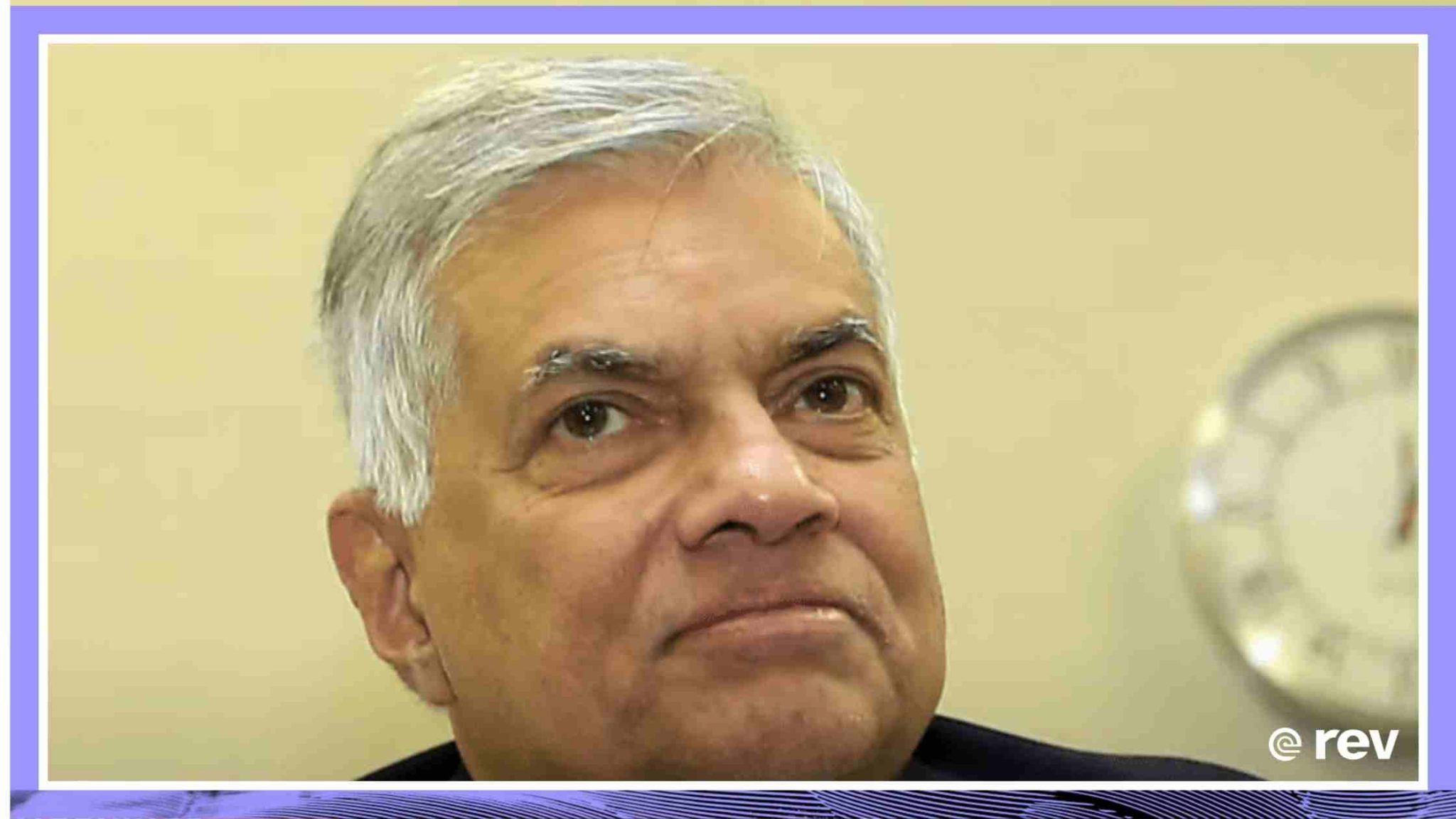Jul 21, 2022
Sri Lanka lawmakers elect new president after former leader flees Transcript

Sri Lanka votes in six-time Prime Minister Ranil Wickremesinghe as president after its former leader fled the country and resigned by email. Read the transcript here.
Transcribe Your Own Content
Try Rev and save time transcribing, captioning, and subtitling.
Speaker 1: (00:02)
Now to Sri Lanka, where the country’s parliament has elected a new president. Mass protest over the past few weeks forced the former leader to flee the country amid the worst economic crisis in decades. Sri Lankan lawmakers chose six time prime minister Ranil Wickremesinghe for the spot. Now he was sworn in as acting president last week and faces off against two opponents before getting voted in today.
Speaker 1: (00:26)
He’s a controversial pick as protesters have also raised concerns about his leadership. Nilanthi Samanarayake is with us from Washington now to discuss these political developments. She directs the strategy and policy analysis program at the nonprofit research organization CNA. Thank you so much for joining us. Can you tell us a little bit more about this new president and why lawmakers took the risk to appoint him as sort of interim president? Because protestors were not too crazy about him either.
Nilanthi Samanarayake: (01:01)
That is true. He is not popular with the public. Ranil Wickremesinghe, he is still though a veteran’s Sri Lankan politician and a previous prime minister on multiple occasions. And today he received the most votes in parliament and he’s set to serve out the next two years of the former president’s term.
Speaker 1: (01:25)
The world saw these stunning images of protestors storming the residences and the offices of the former president and the prime minister. Can you just break down the situation for us? We know that it’s an economic crisis, but the whole world has been sort of buckling over the results of the pandemic. Why are protestors blaming the government?
Nilanthi Samanarayake: (01:47)
The tipping point in Sri Lanka was after the public lost regular access to essentials like fuel and food products, milk powder, cooking gas and medical supplies, so real essentials. The public is also suffering power outages and the ability of children to attend school regularly. And there’s an estimated a quarter of the public is actually food insecure.
Speaker 1: (02:13)
So the next step for this new leader is to start negotiations to figure out an economic bailout package with the IMF. Is he in a position to do that?
Nilanthi Samanarayake: (02:30)
He is. Even though he is not popular at home, he does have credibility and relationships with international stakeholders. And the discussions with the IMF now have a fighting chance now that stability has been restored to the political process. And the economic crisis, it was a long time coming after decades of poor management of the economy and a failure to adapt to sustainable debt management practices to the point where the country defaulted on its debt for the first time in its history in April. There’s at least optimism now for forward movement toward an IMF program.
Speaker 1: (03:05)
If there’s one thing that we are learning now is that if something happens in one part of the world, there is often impact around the world. How will a complete collapse of Sri Lanka impact Asia?
Nilanthi Samanarayake: (03:19)
Well, there is hope now with today’s vote and now that Ranil Wickremesinghe has been elected president. In terms of impacts, India has really had an opportunity to demonstrate its regional leadership over the past several months. And this is very important to India because it’s feeling pressure from China’s rise in Asia and globally. India has provided eight of up to $4 billion to Sri Lanka in the form of a currency swap, deferral of debt repayment and lines of credit for vital essentials like food and fuel.
Nilanthi Samanarayake: (03:58)
But going back to Sri Lanka, it’s going to be an important time of internal regrouping to get the economy back on track, to get services flowing to the public, and the leadership it now really needs to gain the people’s confidence and it’s going to be a difficult road ahead for the public to be able to navigate what comes.
Speaker 1: (04:19)
Indeed. Nilanthi, thank you so much.
Nilanthi Samanarayake: (04:23)
Sure.
Transcribe Your Own Content
Try Rev and save time transcribing, captioning, and subtitling.






